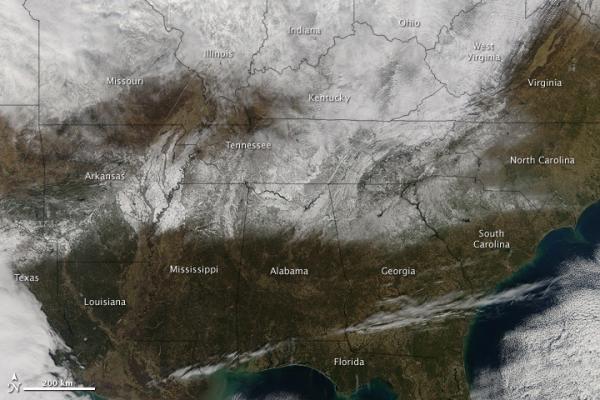
Could This Frigid Winter Be a Record-Brrreaker?

A snow day is one thing, but a cold day? That's just what some kids got today (Jan. 24) when schools in some of the most frigid corners of the United States canceled classes due to the morning's bitter cold.
Those kids had to settle for a television remote instead of a sled. Some areas had bone-chilling temperatures as low as 25 degrees below zero Fahrenheit (minus 32 Celsius). Add the wind chill, and outside felt like minus 50 F (minus 45 C) in some towns. The cold was linked to at least two deaths, the Associated Press reported.
New York City, which got pummeled during the Christmas Blizzard of 2010, was north of zero this morning, but commuters were hit with lows not seen in years.
"Quite a way to wake up. NYC within a degree of the coldest temperature in 6 years," tweeted Pat Kiernan, a news anchor on the local television station NY1.
Don't complain about the cold, though, to anyone from Saranac Lake, N.Y. The morning low in that Adirondacks town was minus 36 F (minus 38 C), the coldest temperature in the continental United States this morning. (Residents there could not be blamed for being jealous of Marathon, Fla., where the temperature was about 100 degrees Fahrenheit higher, with a low in the 60s.) [Related: The Coldest Places on Earth.]
A few warm spells aside, the cold may stick around. Based on what is predicted for the rest of the season, this winter could be the coldest for the nation as a whole since the 1980s, said AccuWeather.com's chief long-range forecaster, Joe Bastardi. Temperatures in cities including New York and Boston have been below average since Dec. 1, a trend that is expected to continue into the middle of February, according to AccuWeather.
Some forecasters are more cautious, including those from the places that generate the data upon which winter forecasts are based.
Sign up for the Live Science daily newsletter now
Get the world’s most fascinating discoveries delivered straight to your inbox.
Scientists at the National Oceanic and Atmospheric Administration make predictions for specific regions of the country instead of lumping together, say, the Southeast and Midwest.
The three-month forecast from NOAA's Climate Prediction Center predicts above-average temperatures in the Southern and Central states, and below-average temperatures in the northernmost Central and Western states. There's a high chance of above-average precipitation possibly more snow in the Pacific Northwest, Northern Rockies, Great Lakes and Ohio Valley.
But as for whether this winter will prove to be the coldest since the 1980s, scientists are waiting until all the data come in.
"It would be unusual for us to call any season the coldest until it's over," Susan Buchanan, a spokeswoman for the Climate Prediction Center, told OurAmazingPlanet.
- January Will Be the Coldest Since 1985, So Where's Global Warming?
- The World's Weirdest Weather
- Another Winter of Extremes, Forecasters Say
Reach OurAmazingPlanet staff writer Brett Israel at bisrael@techmedianetwork.com. Follow him on Twitter @btisrael.









